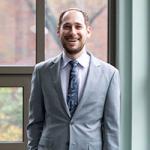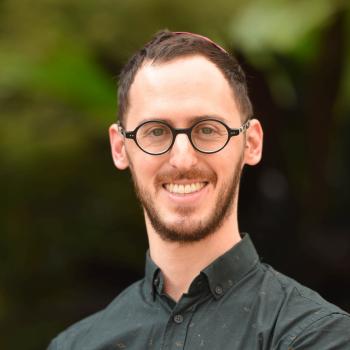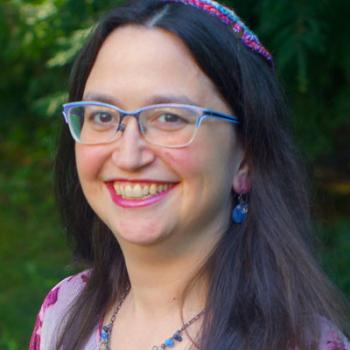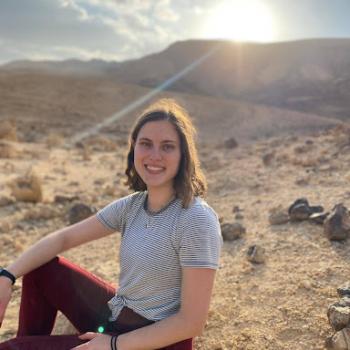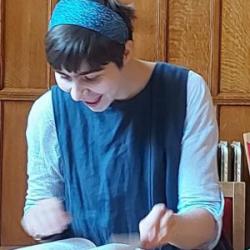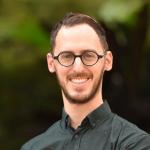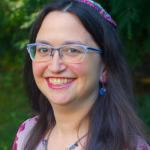Parashat Nasso Deuteronomy 4:21-7:89
My late teacher, Rabbi Zalman Schachter-Shalomi, of blessed memory, often said, “The world is under-blessed.” In his gentle, playful way, he reminded us that while we are quick to name what is broken or lacking, we are much slower to offer words that sanctify, uplift, and affirm the good that persists—even in the midst of hardship. He believed the world aches not only from violence and injustice, but from spiritual poverty—a drought of blessing.
To say the world is under-blessed is to recognize that blessing is not merely a liturgical phrase or ritual act. It is a way of seeing and being. To bless is to notice the spark of holiness in each moment, in every creature and encounter. It is to become a partner in the ongoing work of creation, echoing the affirmation in Genesis: “God saw all that He had made, and found it very good” (tov me’od, Genesis 1:31). Reb Zalman challenged us to become “blessers”—to cultivate a consciousness that actively seeks out opportunities to name and nurture the sacred in our midst.
This teaching draws from the Hasidic tradition that Reb Zalman cherished and sought to share widely. The Baal Shem Tov—the first great Hasidic personality—taught that divine sparks (nitzotzot) are hidden throughout the world, waiting for our loving attention. Our task is to uncover and elevate these gems—transforming the ordinary into the holy through mindful presence and intentional action. In a world beset by pain and suffering and often defined by complaint and critique, the act of blessing becomes an act of radical hope—a refusal to let despair or cynicism have the final word.
Reb Zalman’s insight goes even deeper. To bless is not only to sanctify what is—it is also to call forth what might yet be. A blessing affirms the present and aspires toward the future. When we bless our children, our friends, or even strangers, we are not just naming their goodness; we are inviting them to grow into their fullest selves. Blessing is a creative partnership with the Divine—a way of participating in the ongoing process of healing.
And yet, how often do we withhold blessing—out of fear, distraction, or a mistaken sense of unworthiness? How often do we pass by the chance to offer a kind word, a gesture of gratitude, or a prayer for healing? The world is under-blessed not because God withholds divine favor, but because we have forgotten our own sacred power—and responsibility—to bless. The ancient rabbis taught that every person should recite one hundred blessings each day—not as a burdensome obligation, but as a practice of awareness, a way of attuning ourselves to the abundance that surrounds us (Babylonian Talmud, Menachot 43b).
Parashat Nasso amplifies this message. In it, God instructs Moses to teach Aaron and his sons—the kohanim—to bless the Israelites with these words:
“May the Eternal bless you and protect you.
May the Eternal make His face shine upon you and be gracious to you.
May the Eternal lift His face toward you and grant you peace.”
(Numbers 6:24–26)
This Priestly Blessing (Birkat Kohanim) is not merely a ritual recitation, but a spiritual act meant to infuse the community with divine presence, protection, and shalom. The priests become conduits of God’s love and care, placing God’s name upon the people, so that, in God’s words, “I Myself shall bless them” (Numbers 6:27).
Rabbi Abraham Joshua Heschel, of blessed memory, taught that “to bless is to evoke God’s presence in the world, to draw down holiness into the everyday” (God in Search of Man, p. 224). This sacred responsibility is not limited to priests—it belongs to each of us. Every encounter becomes an opportunity to “lift up our faces” to one another, to see the divine image (tzelem Elohim) in those around us, and to speak words that heal, encourage, and inspire.
The Priestly Blessing ends with a prayer for shalom—a peace that goes beyond the absence of conflict. It is a vision of harmony and wholeness (shleimut), a world in which what is broken is mended, and what is good is nurtured.
As we read Parashat Nasso, let us take to heart Reb Zalman’s call—he himself a kohen—to spiritual generosity. May we become more mindful of the blessings we can offer and more courageous in bestowing them. In the spirit of our teachers and ancestors, may we become a people who bless and are blessed—partners in the great work of renewing creation, one word, one gesture, one spark at a time.
Rabbi Or Rose, founding Director of The Miller Center of Hebrew College, serves as a senior consultant to Interfaith America. Among his recent publications is the award-winning, co-edited volume With the Best of Intentions: Interreligious Missteps & Mistakes (Orbis Books), and My Legs Were Praying: A Biography of Abraham Joshua Heschel (Monkfish Book Publishing) for teen and young adult readers.


